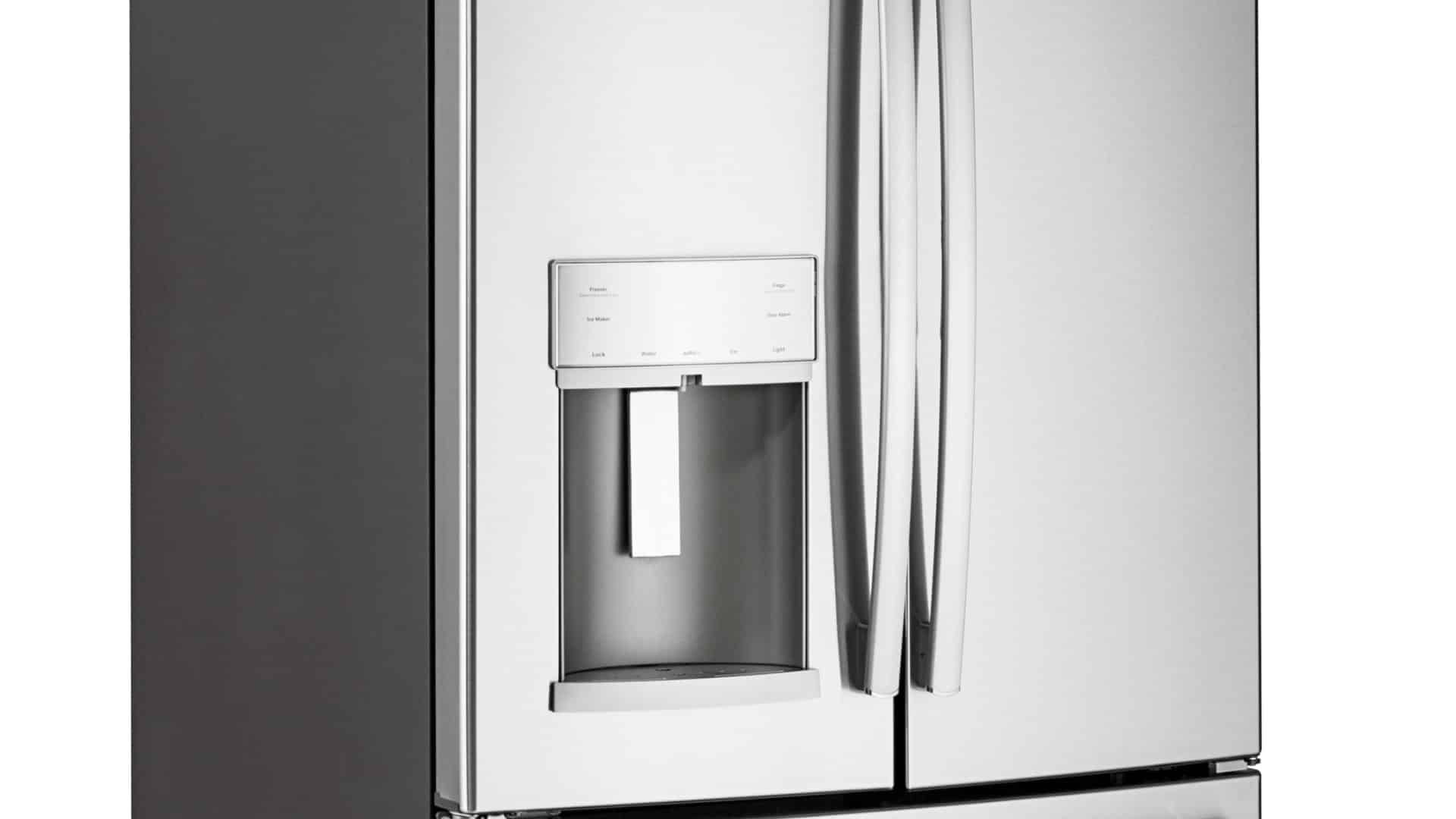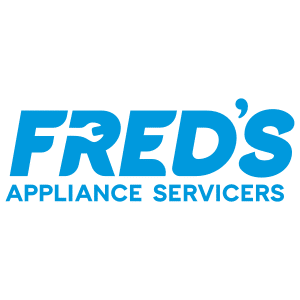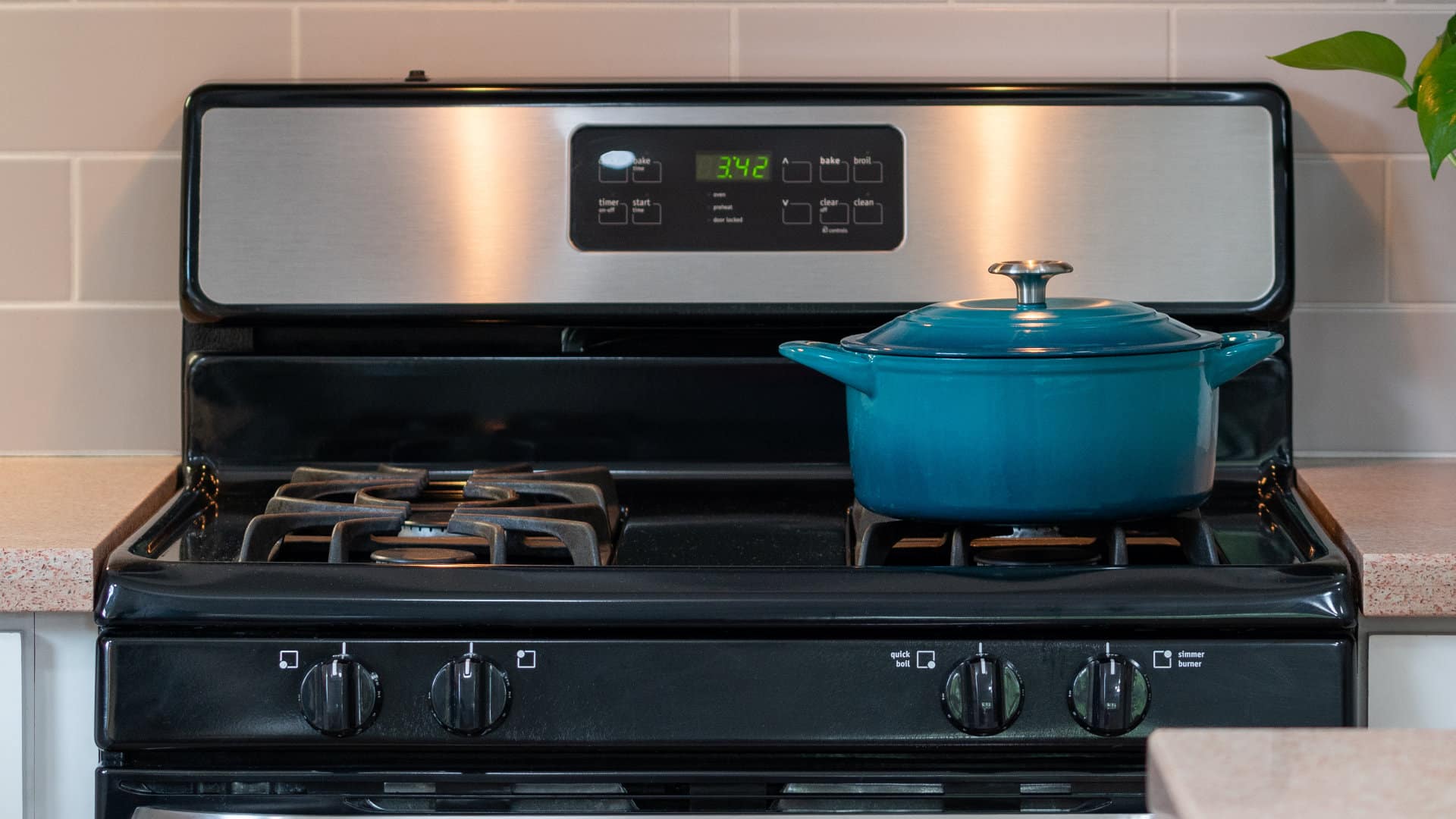
The oven is one of the core appliances in your kitchen, allowing you to cook a variety of dishes to perfection, from bread to pizza to roast beef, all in the comfort of your own home. However, despite its versatility, there are certain items that you should never put in your oven. In the list below, we cover the nineteen things that you should avoid putting in your oven.
1. Oil or grease
One of the top things you should never put in your oven is a lot of grease or oil. They are very flammable, and the fires resulting from either one can be difficult to put out.
While many recipes call for the use of grease or oil in cooking, it’s important to exercise caution when using these substances in your oven. There are a few reasons why you should be careful with grease or oil in your oven.
Oils and greases have specific smoke points—this is the temperature at which they begin to smoke and burn. If heated beyond this point, they can ignite, potentially causing a fire in your oven.
Accidental spills of oil or grease near heat sources, on stovetops, or inside ovens can lead to a dangerous chain reaction. The spilled oil or grease can catch fire and quickly spread.
Grease or oil fires are particularly dangerous because they cannot be extinguished with water. In fact, attempting to put out a grease fire with water can cause the fire to spread further. It’s important to know how to properly extinguish such a fire to prevent it from getting out of control.
2. Plastic
Plastic containers or wraps are not designed to withstand exposure to the high temperatures of an oven. Plastic can melt and release harmful chemicals into your food, which can be harmful if ingested.
3. Wet potholders
If you place a wet potholder in the oven, the heat will turn the water into steam. This can cause severe steam burns when you try to remove the potholder from the oven.
4. Cardboard and paper
These materials are highly flammable. If they come into contact with the heating elements of the oven, or if the oven’s temperature is too high, they can easily catch fire and potentially cause damage to your home.
5. Styrofoam containers
Styrofoam is a form of plastic that is especially unsuitable for oven use. It melts at a lower temperature than most other plastics and can release toxic fumes when heated.
6. Aluminum foil
While aluminum foil is often used in the oven, it should never touch the sides or cover the bottom of the oven. The foil can reflect heat back onto the oven, damaging the heating elements and increasing the risk of fire.
7. Glassware not meant for oven use
Glassware that isn’t specifically labeled as oven-safe may not be able to withstand the heat. This can make the glass shatter or crack, potentially causing injury and making a mess in your oven
8. Empty non-stick cookware
Non-stick pans are covered in a coating that can break down and release toxic fumes if the pan is heated while empty. These fumes can be harmful to animals and potentially to humans as well.
9. Batteries
Batteries contain chemicals that can leak or explode if exposed to high heat. This explosion can cause severe damage to your oven and potentially result in a fire
10. Metal containers with plastic handles
While the metal part of the container can withstand the heat of your oven, the plastic handles cannot. They can melt, making it extremely dangerous to remove the container from the oven.
11. Wooden utensils or boards
Some wooden items are oven-safe, but others are not. Those that aren’t can warp, crack, or even catch fire if exposed to high heat for too long. Always check whether a wooden item is oven-safe before using it in the oven.
12. Plastic bags
Plastic shopping bags should never be placed in the oven. Similar to plastic containers, if exposed to high heat, plastic bags can melt and release harmful chemicals into your food.
13. Certain metals
Certain types of metals should be avoided as well. Aluminum and copper pans without a stainless steel or tin lining can discolor and impart a metallic taste to food, especially when cooking foods that are acidic or alkaline.
14. Wax paper
Wax paper, despite its common usage in baking, is actually not heat-resistant and can catch fire if it makes contact with a heating element.
15. Canned pet food
While it might be tempting to warm up your pet’s food in the can, this is not a safe practice. The can may have a lining that could release toxins when heated. The heat can also increase the pressure in the can, causing it to explode.
16. Canned food
Just like pet food, cooking food in the can is not recommended, especially in the oven.
17. Takeout containers
Many takeout containers, even those that seem like they’re made of aluminum or cardboard, have a thin plastic coating that can melt at high temperatures.
18. Cups or mugs with metallic paint
You should also avoid placing cups or mugs with metallic paint in the oven. The metallic paint can melt and cause fumes that are harmful to human health.
19. Sponges or cleaning cloths
Kitchen sponges or cloths can easily catch fire and should be kept away from the oven as well.
20. Whole eggs
Lastly, never place an egg in its shell in the oven. Eggs cooked in this way can explode due to the pressure build-up inside the shell.
Your oven can be your best friend in the kitchen, but it is important to use it safely. Avoid putting plastic containers, wet or damp oven mitts or towels, glass cookware that is not oven-safe, aluminum foil or other metallic objects, paper or cardboard, grease or oil into the oven. By doing so, you can ensure that your oven stays in good condition and that you avoid any potential hazards.
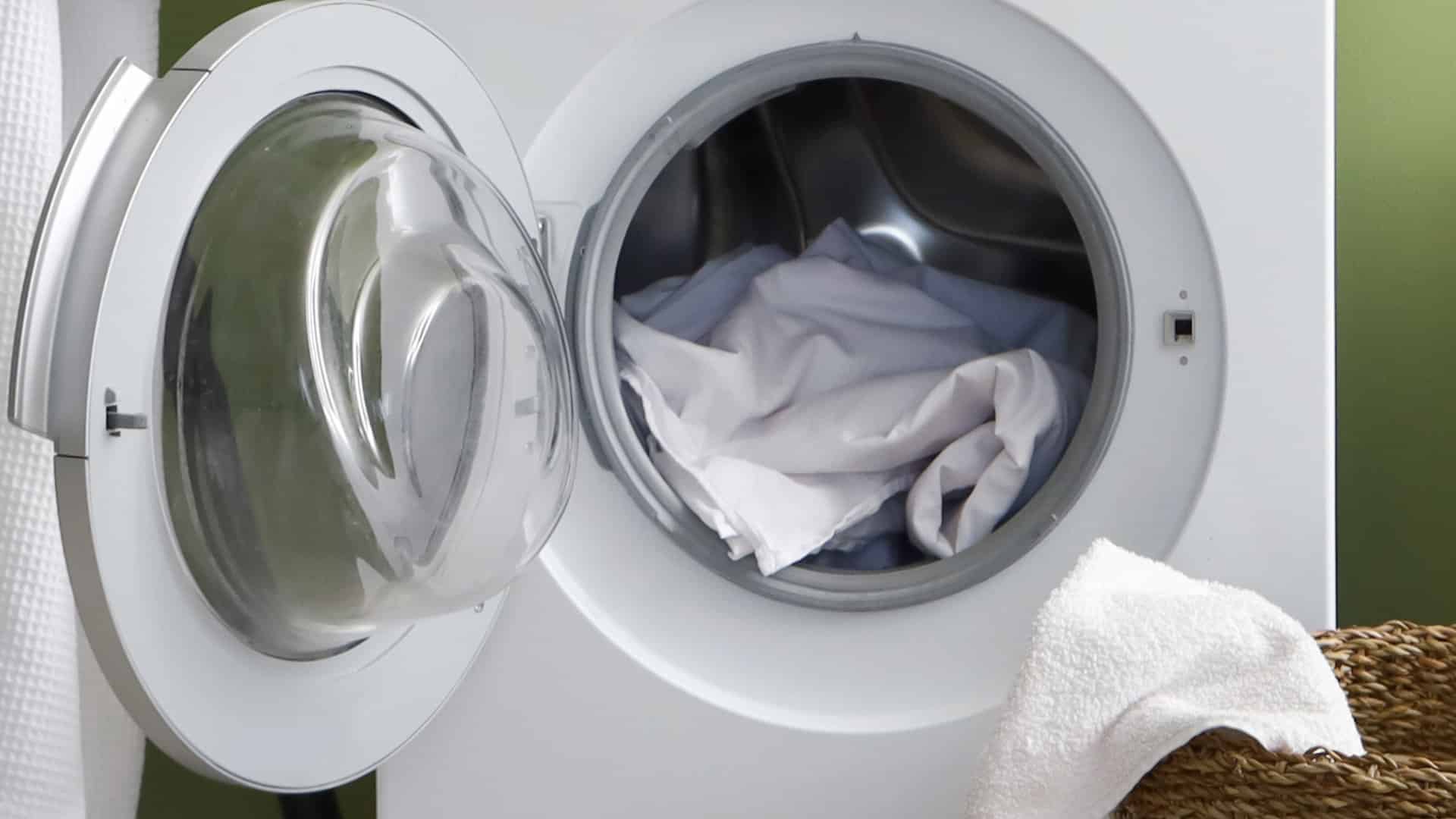
Whirlpool Washer Error Codes Explained
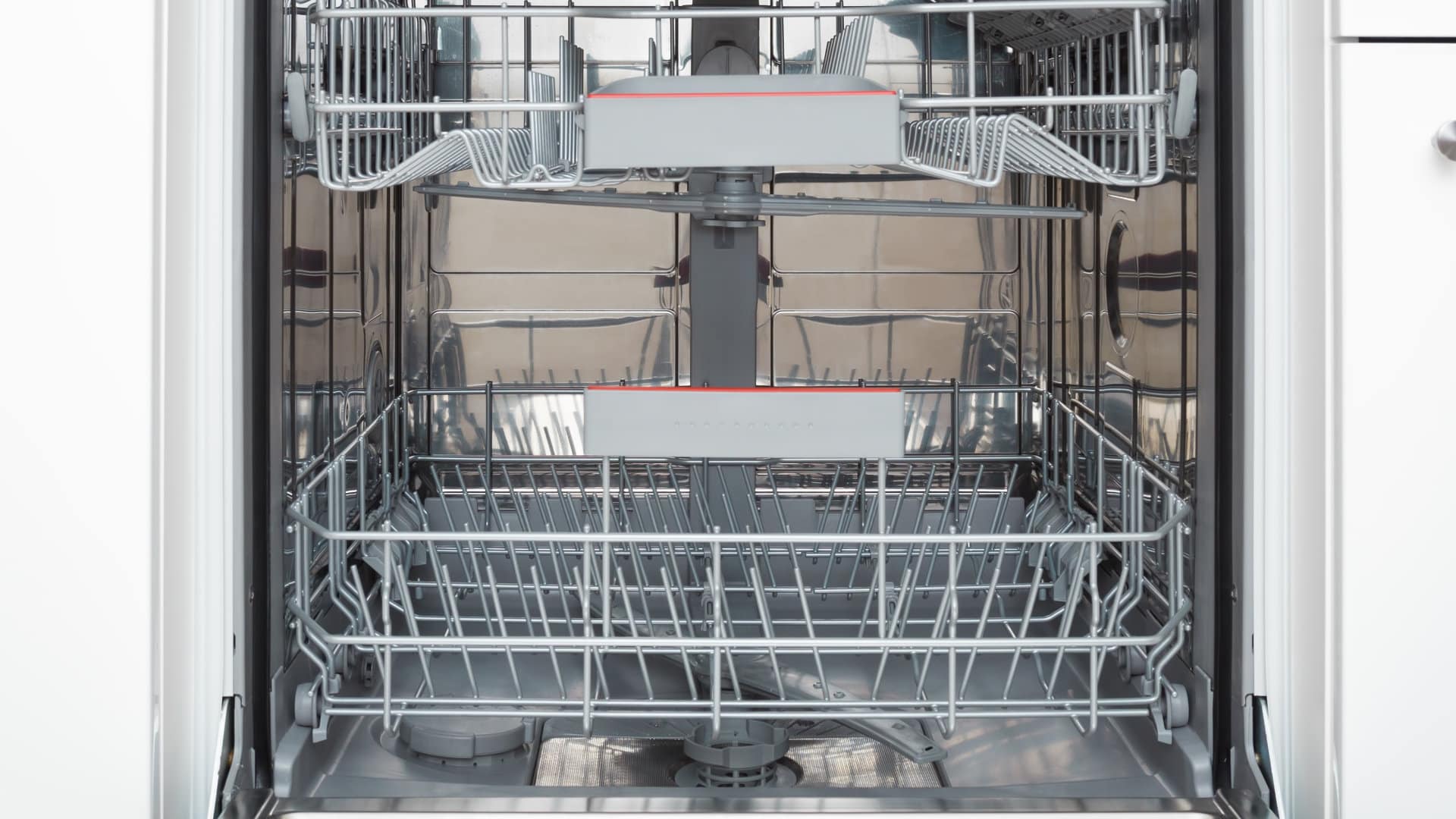
How to Wash a Hat in the Dishwasher (In 5 Steps)
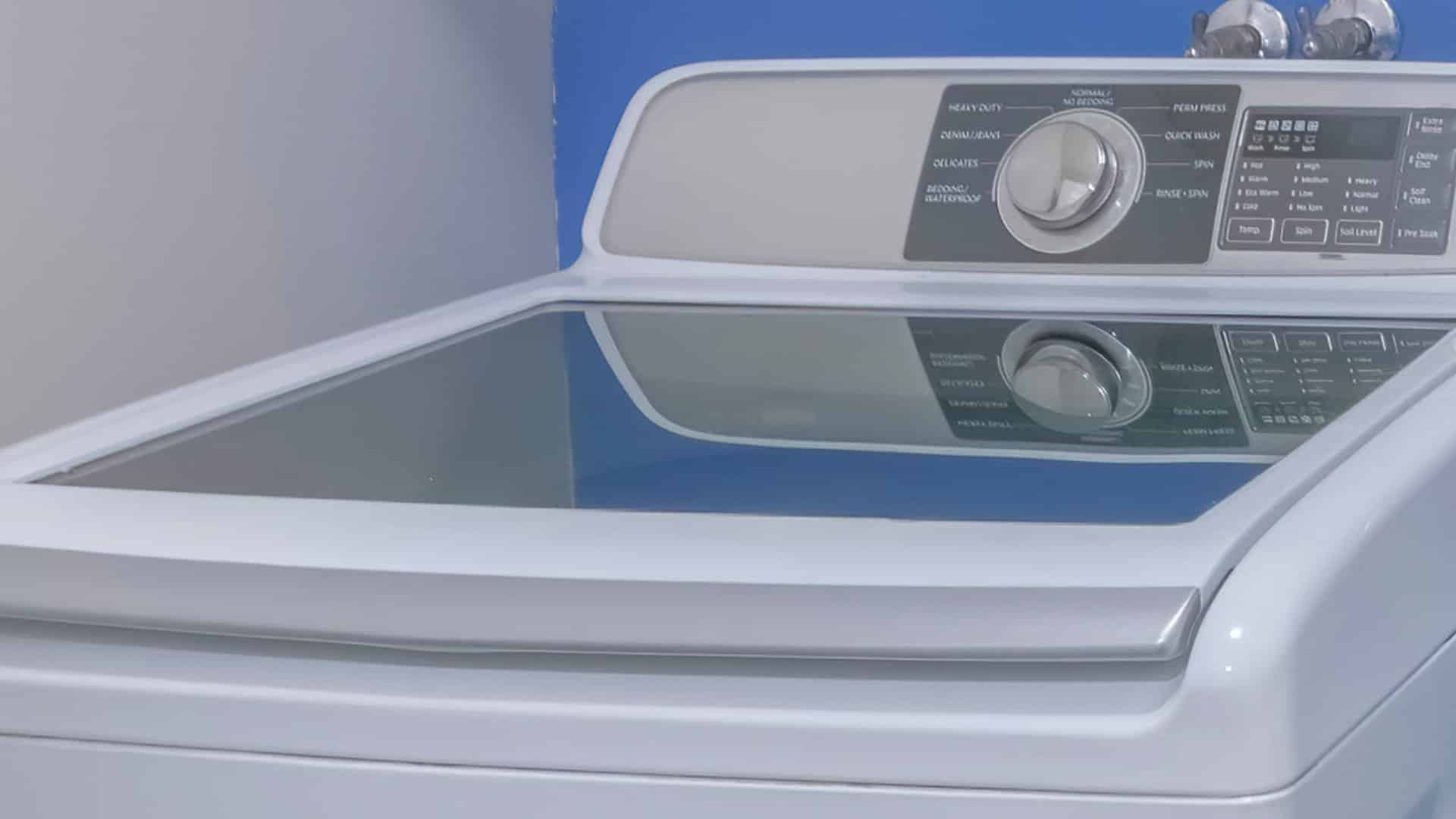
How to Fix the nF Error Code on a Samsung Washer
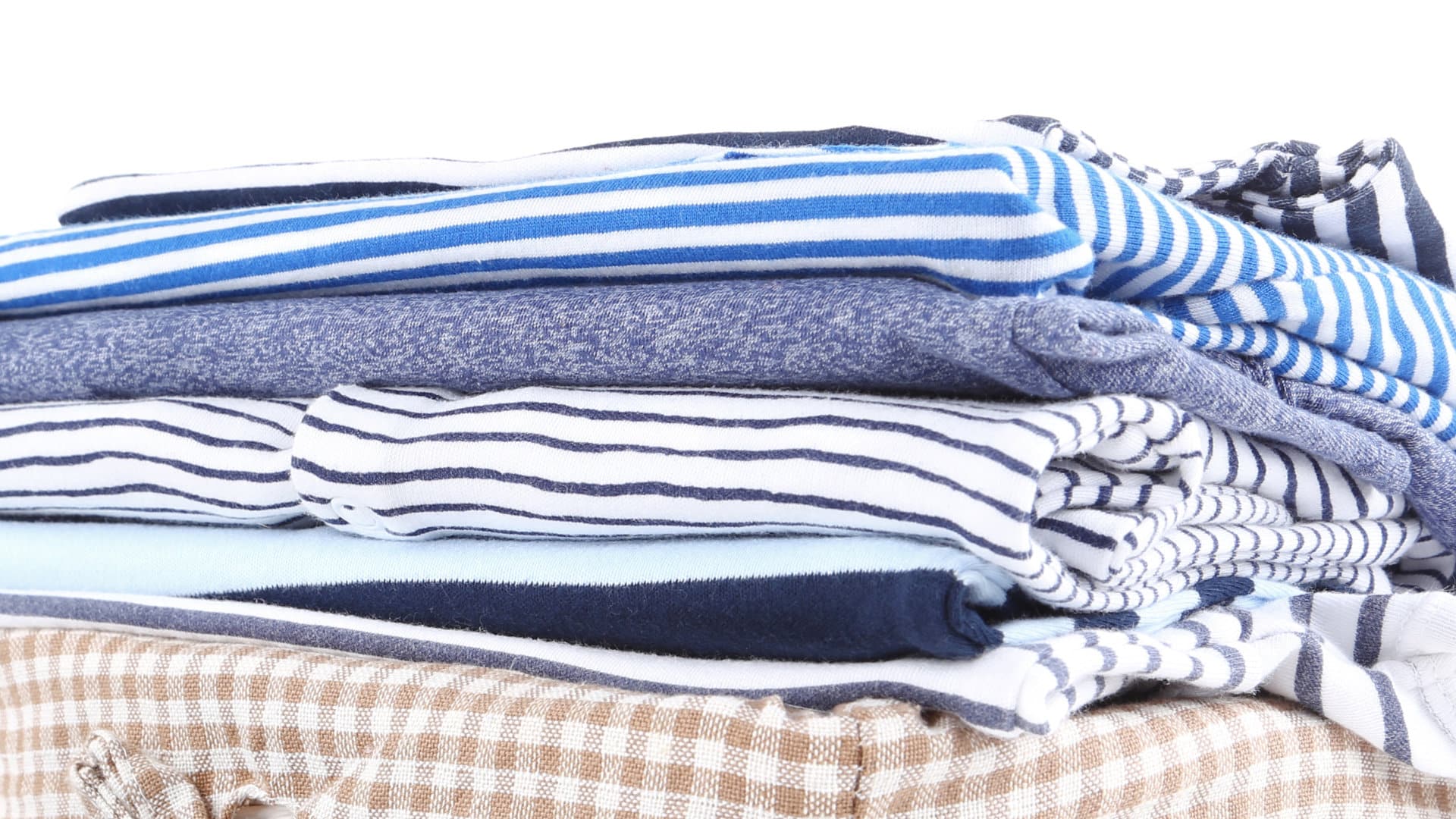
Kenmore Elite Dryer Issues: How To Troubleshoot
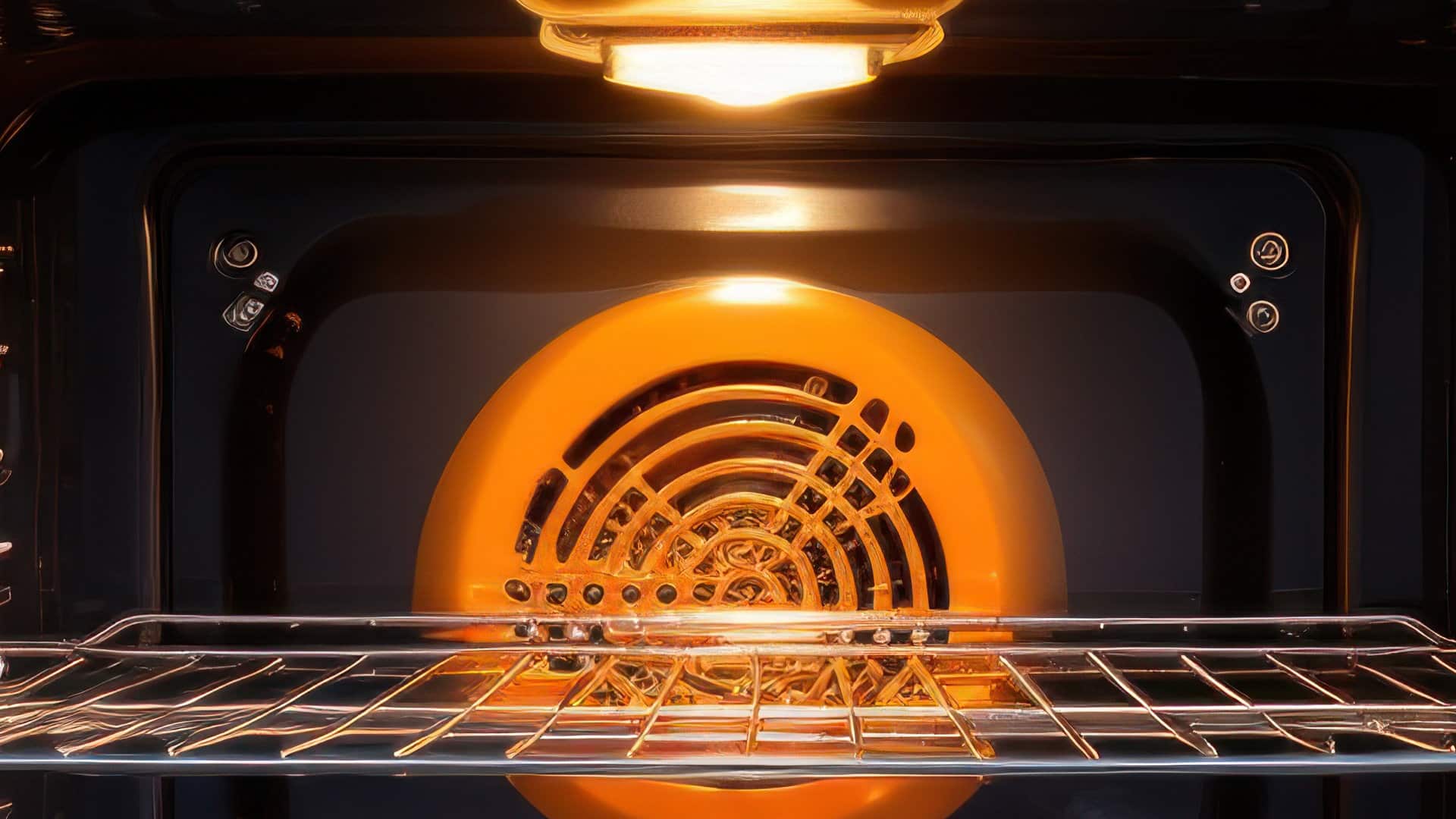
Microwave vs. Oven: Pros and Cons and How They Differ
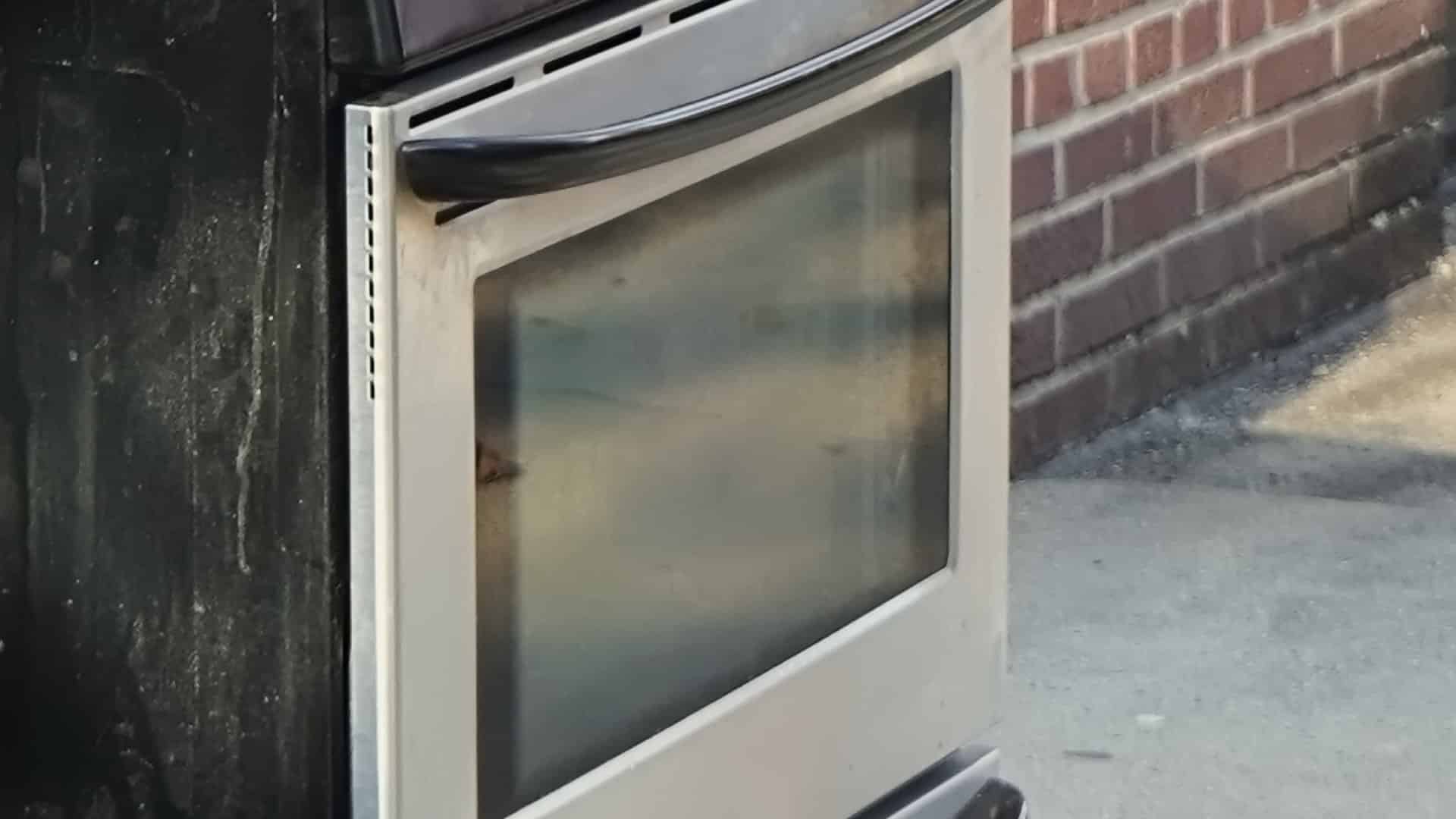
Self-Cleaning Oven Smell: Causes & Odor Reduction Tips
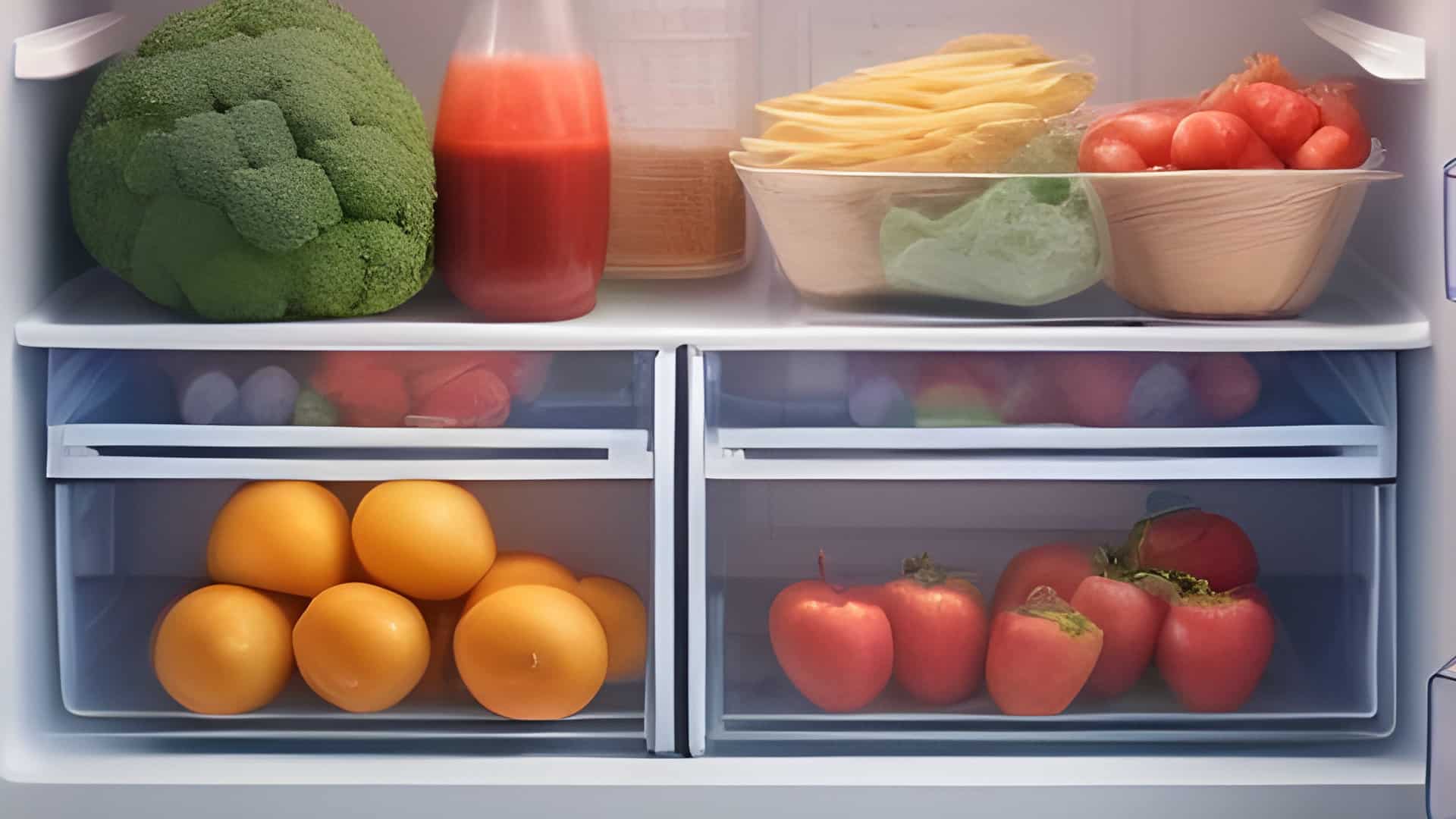
Frigidaire Ice Maker Not Working? 7 Ways to Fix It
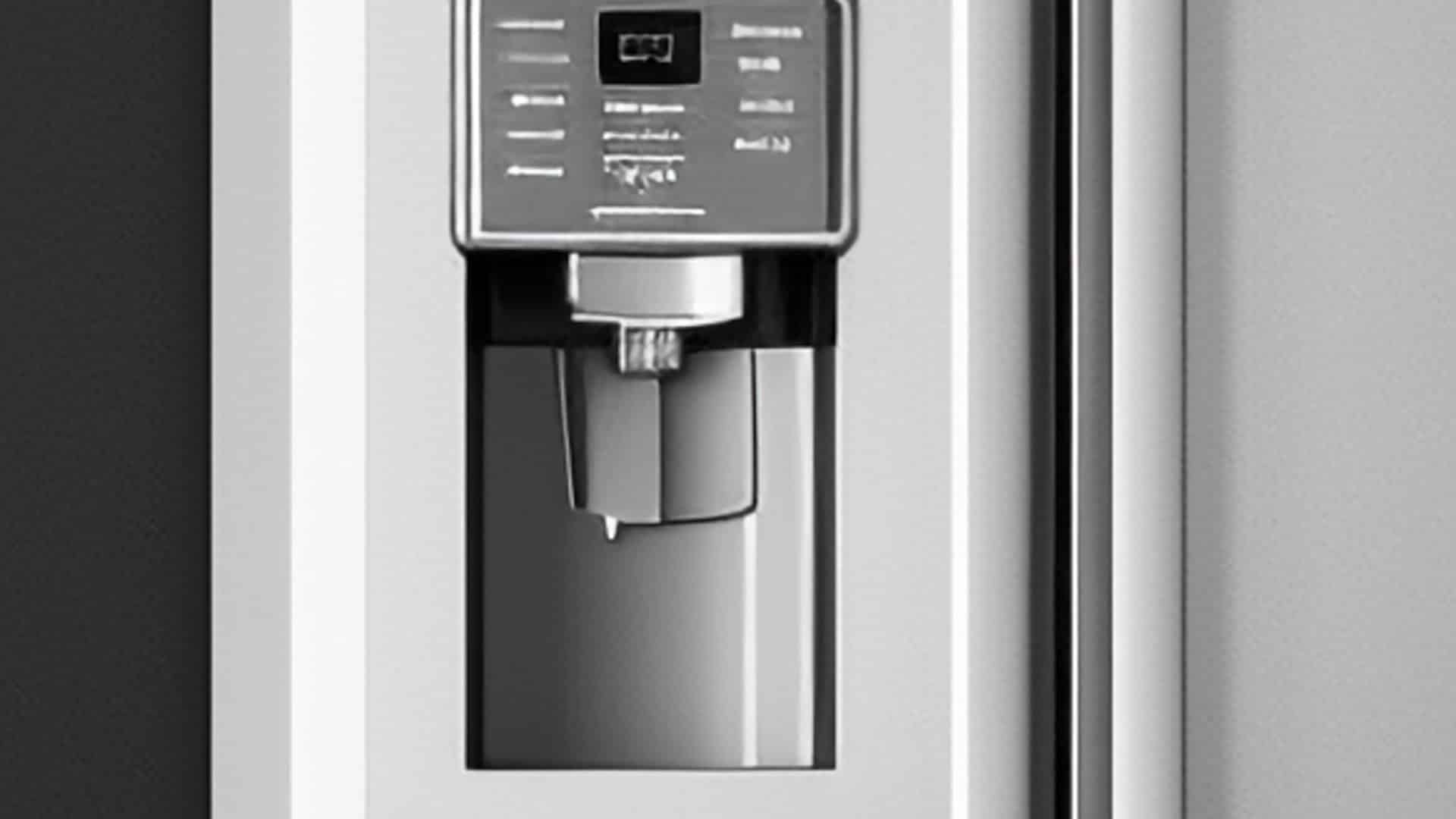
Why Is Your LG Refrigerator Not Cooling? (9 Common Reasons)
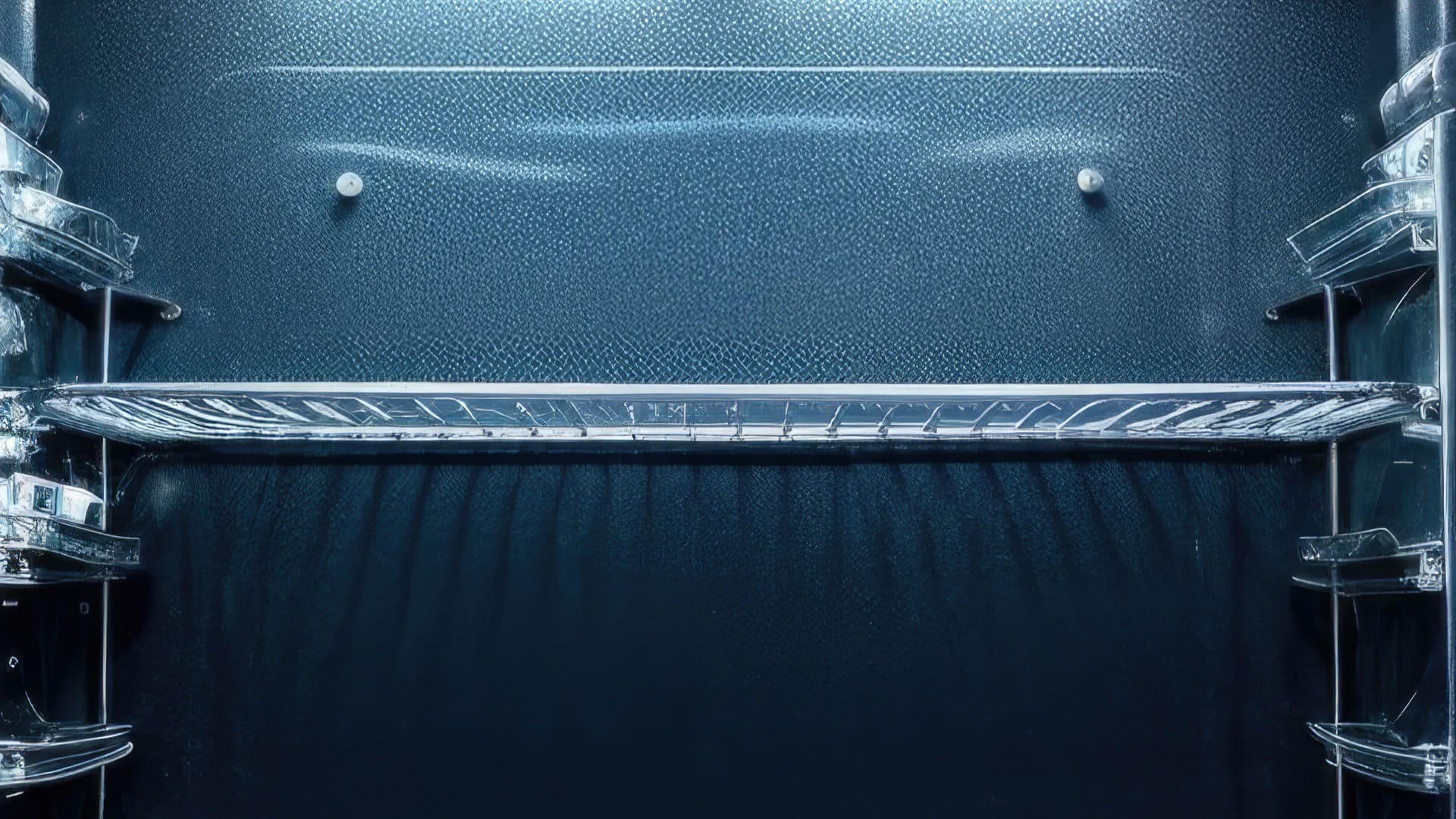
GE Oven F2 Error: Causes & Solutions
